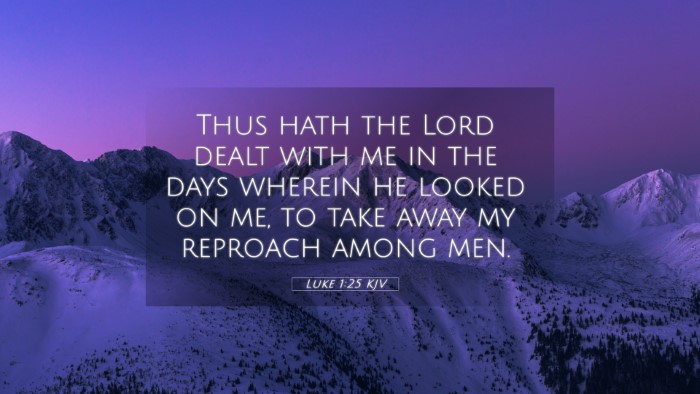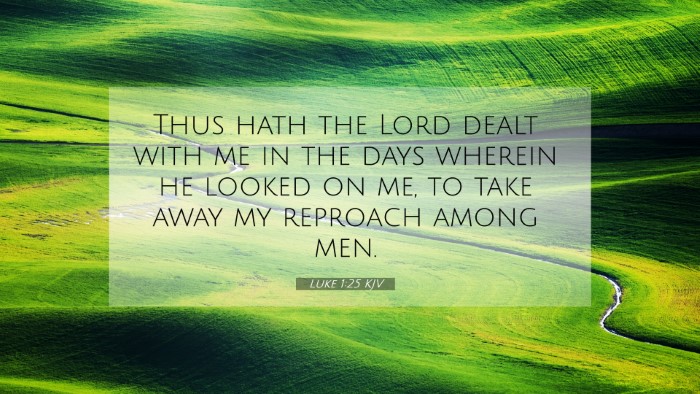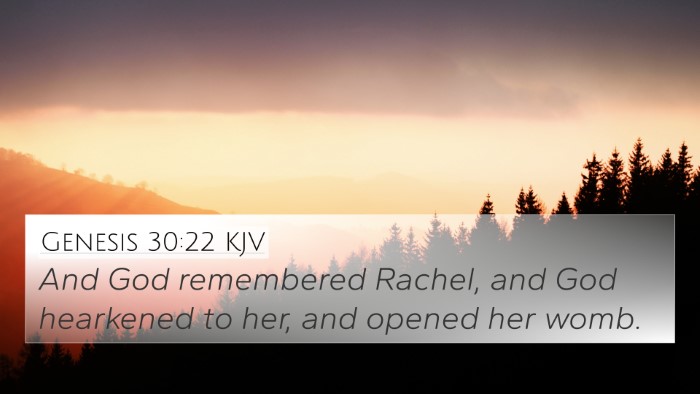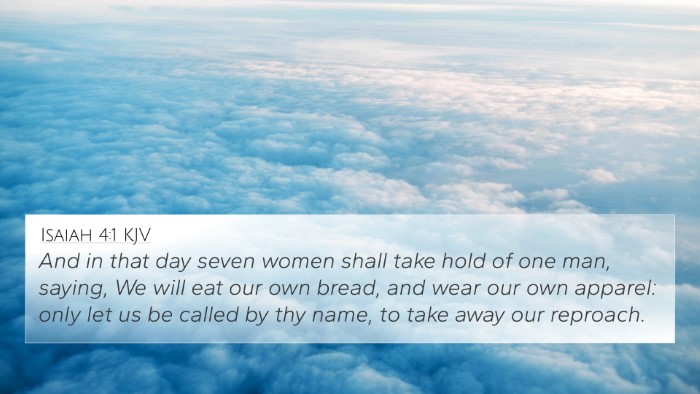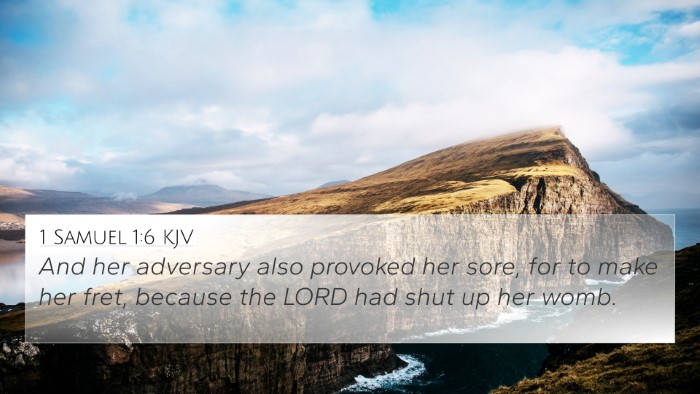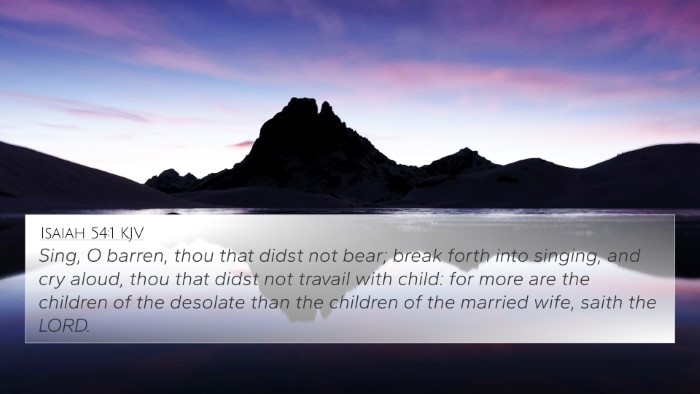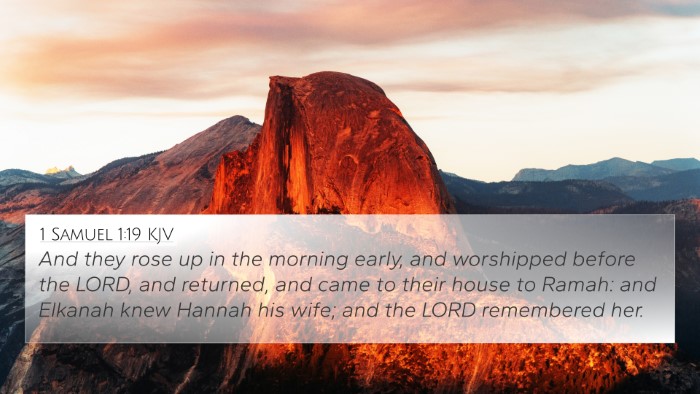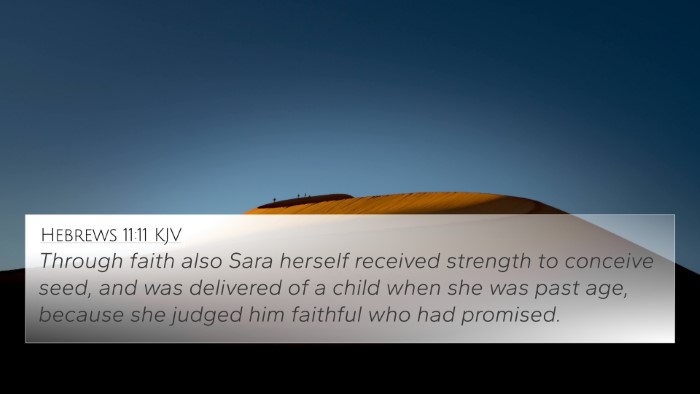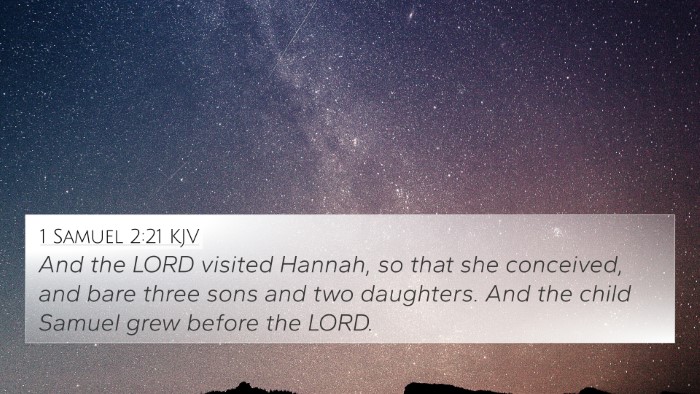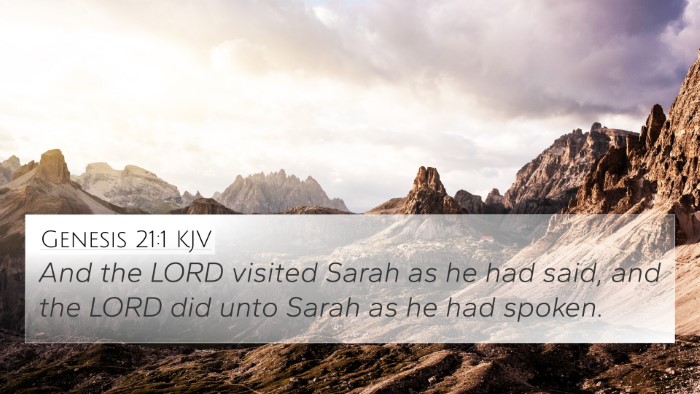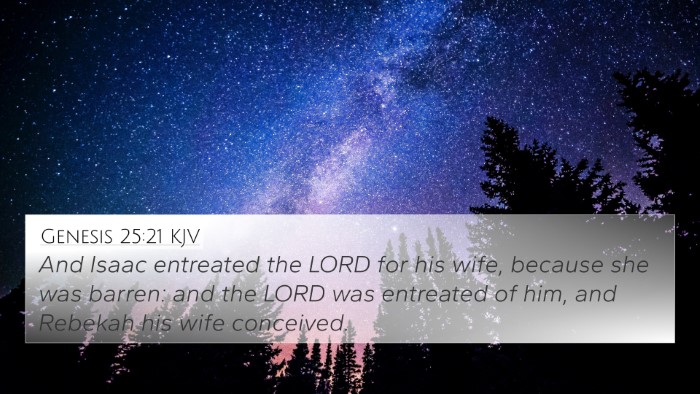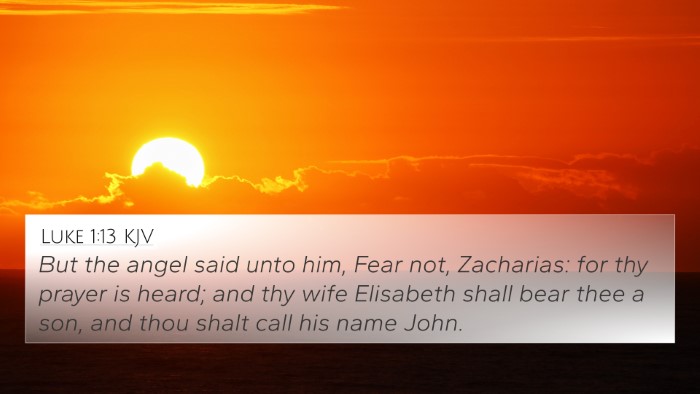Understanding Luke 1:25
Luke 1:25 reads: "Thus hath the Lord dealt with me in the days wherein he looked on me, to take away my reproach among men."
Commentary Insights
This verse comes from the prophecy of Zechariah and the announcement of the birth of John the Baptist. The significance of Luke 1:25 can be understood through a combination of insights from Matthew Henry, Albert Barnes, and Adam Clarke.
Historical Context
Matthew Henry suggests that this verse reflects God's favor towards Elizabeth, emphasizing the societal shame surrounding childlessness in ancient Israel. The phrase "take away my reproach" indicates Elizabeth's deliverance not just from personal grief but also from societal scorn.
Albert Barnes expounds on the personal emotion Elizabeth experiences upon receiving this news. The acknowledgment of God's mercy and intervention is fundamental as Elizabeth finally feels liberated from her public humiliation, illustrating themes of grace and vindication.
Adam Clarke connects this moment to broader theological implications, highlighting how God's involvement in Elizabeth's life signifies the advent of hope for Israel and the coming of significant prophetic missions in John's ministry.
Thematic Connections
Several themes emerge from this verse that resonate with other parts of scripture:
- God's Mercy: The verse highlights that God actively sees and responds to the plight of His people, a theme pervasive in the Bible.
- God’s Favor: The notion of divine favor is recurrent; Elizabeth's story correlates with other biblical figures who faced similar reproach before experiencing God’s grace.
- Shame and Restoration: Elizabeth's transformation from reproach to honor reflects collective biblical narratives regarding shame being turned into gladness.
Biblical Cross-References
Luke 1:25 can be cross-referenced with the following Bible verses:
- Genesis 30:23-24: Rachel’s experience of barrenness parallels Elizabeth’s situation, emphasizing God's intervention.
- 1 Samuel 2:5: Hannah's prayer of thanksgiving after bearing Samuel links to Elizabeth's joy at her son's impending birth.
- Isaiah 54:1: A prophetic promise that speaks to the joy of those who were once barren, aligning with Elizabeth's experience.
- Luke 1:14: Directly connects to the rejoicing over the birth of John, a key deliverer in the New Testament.
- Psalm 113:9: Highlights God's compassion towards the barren and the poor, reflecting themes of divine favor.
- Luke 1:48: Mary's proclamation of God's blessings reveals similar societal dynamics of favor and shame.
- Matthew 1:23: The announcement of Jesus ties into Elizabeth's narrative, presenting the interconnectedness of these birth narratives.
- Psalms 126:1-3: Speaks of joyful restoration, echoing Elizabeth's transformation from reproach to joy.
- Revelation 21:4: Encompasses the ultimate hope of God wiping away every tear, akin to the restoration seen in Elizabeth’s life.
Applications and Reflections
Reflecting on Luke 1:25, one might ask how their own experiences of shame or reproach can be redeemed by God. This verse encourages believers to recognize that God's timing is perfect and that He has the power to transform personal circumstances for His glory.
Tools for Further Study
If you wish to delve deeper into cross-referencing Bible verses, the following tools may be useful:
- Bible concordance for identifying similar verses.
- Bible cross-reference guide to help find thematic connections.
- Cross-reference Bible study methods that enhance understanding.
- Bible reference resources to aid in comparative analysis.
- Comprehensive Bible cross-reference materials available in numerous translations.
Conclusion
Luke 1:25 stands as a testament to God’s redeeming work in the lives of His people, illustrating the profound changes that come with divine intervention. The connections to other verses reveal the continuity of God’s promises throughout Scripture, serving as an encouragement to those seeking comfort and restoration.

